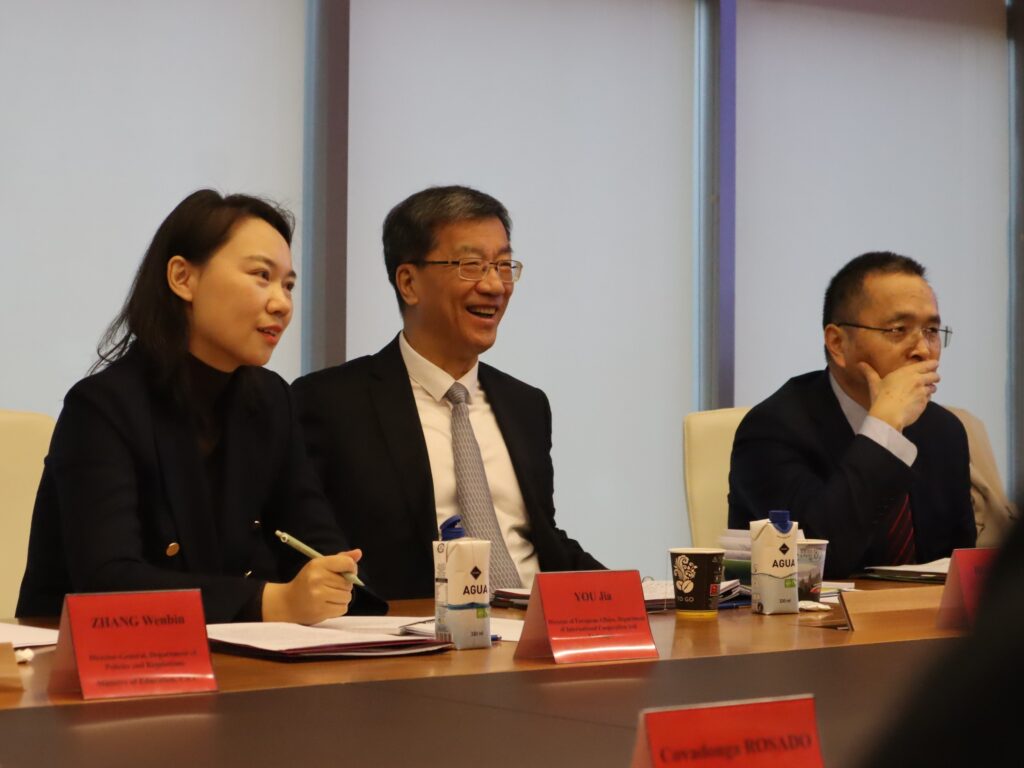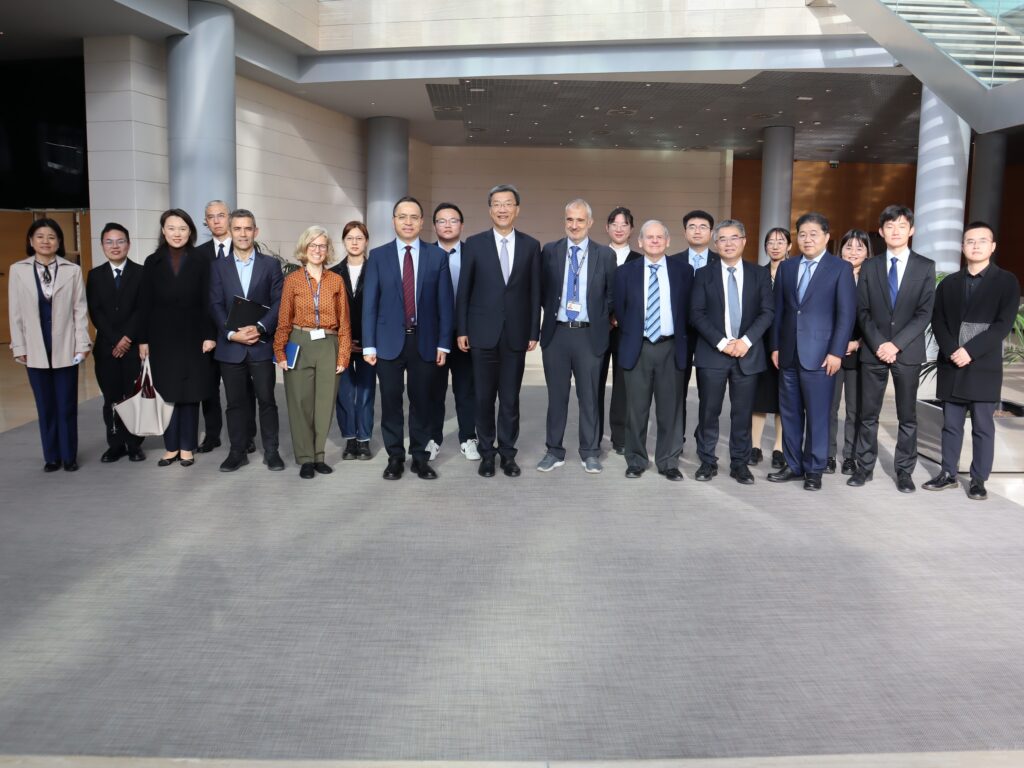- The Chinese Education Minister, Mr. Huai Jinpeng, visited IMDEA Materials Institute during his time in Spain, meeting with the Institute’s management team and researchers to discuss collaboration possibilities.
- Minister Huai was also present for a demonstration of some of IMDEA Materials’ cutting-edge fire-safety testing equipment for use in electric vehicle battery casings.
The Director of IMDEA Materials Institute, Prof. José Manuel Torralba, has highlighted the opportunities to expand collaboration between Spanish research centres and Chinese organisations with the aim of boosting both countries’ R&D&I sectors.
His remarks followed China’s Education Minister, Mr. Huai Jinpeng’s recent visit to IMDEA Materials. During the meeting, discussions focused on ways to strengthen ties between China and the Institute.



See more photos from the visit here.
Minister Huai, accompanied by representatives from the Chinese Ministry of Education and the Chinese Embassy in Spain, met with the IMDEA Materials management team and members of its scientific staff, including Prof. Dr. De-Yi Wang, one of 17 Principal Investigators at the Institute.
Prof. Wang leads IMDEA Materials’ High Performance Polymers and Fire Retardants research group and is a world-renowned expert in flame retardant materials.
The visit coincided with the signing of a Memorandum of Understanding between Minister Huai and Spain’s Minister of Science and Innovation, Ms. Diana Morant, aimed at increasing collaboration in higher education between the two countries.
“Currently, agreements between Spain and China facilitate collaboration between Spanish and Chinese companies, but do not provide funding to Spanish research centres,” noted Prof. Torralba.
“This limits our ability to assist Spanish companies in developing cutting-edge technology based on advanced materials in collaboration with Chinese entities. Moreover, the lack of direct funding means that research centres must allocate additional resources to make these collaborations feasible”.
“However, Minister Huai expressed interest in expanding these agreements, and we hope that the Spanish government will also be receptive to this idea,” added Prof. Torralba.
During the visit, Minister Huai toured one of IMDEA Materials Institute’s laboratories, which recently installed a fire safety testing system for battery enclosures, the only one of its kind in Spain.
“It was evident that our fire testing facilities, developed in-house, made a strong impression,” commented Prof. Dr. Wang. “These cutting-edge capabilities provide an excellent foundation for advancing scientific and technical collaboration with our Chinese partners.”
IMDEA Materials also shared its strategies for technology transfer and intellectual property management in international projects, key aspects for industrial collaboration.
However, the potential to explore new strategies for strengthening collaborations between Spain and China presents numerous opportunities for both countries.
“This visit underscores the importance of strengthening ties between China and Spain, particularly in the area of technological collaboration,” concluded Prof. Dr. Wang. “The Chinese government has demonstrated a strong commitment to collaboration, especially in training students and working jointly with Chinese organisations.”
